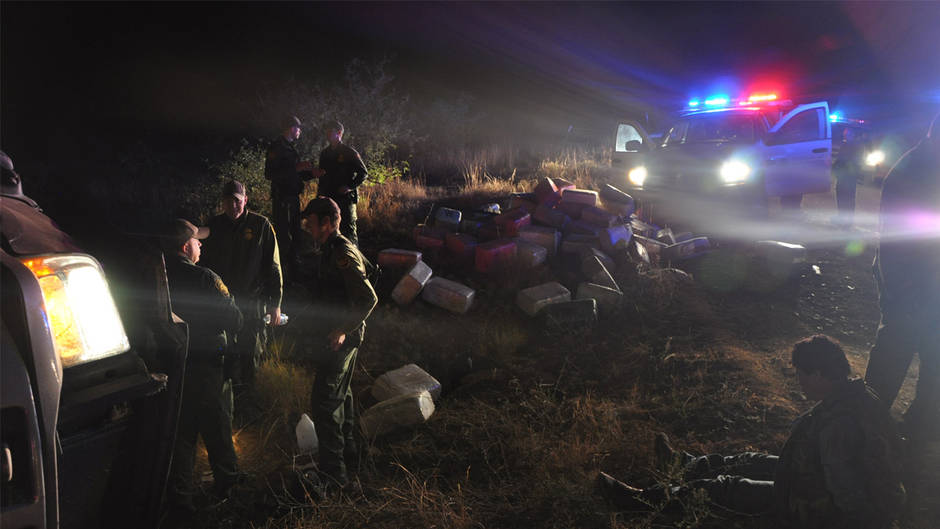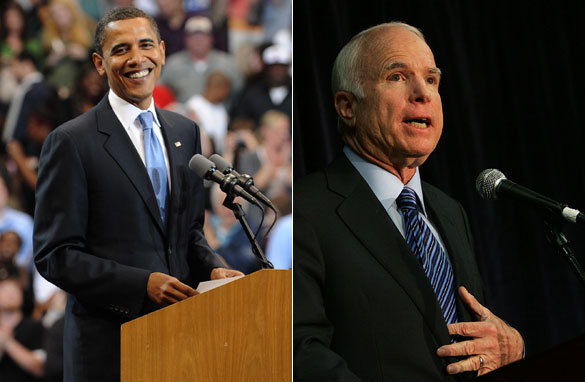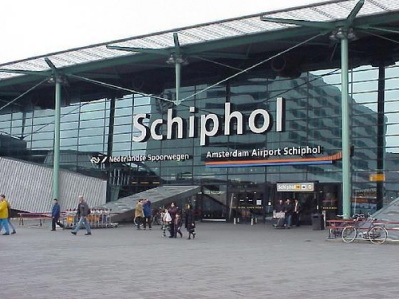
from the show The Border‘s homepage
The television often romanticizes the idea of an international boundary, be it a fugitive seeing freedom across a rural border crossing into Mexico (countless movie plots), crossing a frozen upstate New York lake to smuggle in illegal immigrants or a car thief weaving through a shipping yard, so as to close the container full of stolen cars before the Police are able to recognize which container is his. Maybe its for that that you feel a bit of adrenaline upon seeing the almost standard “Halt” sign at any given border crossing. Nonfiction shows on this subject are, as with anything produced by the mass media carefully modified and tweaked to achieve the individual producer or parent’s agenda, and needs to be carefully analyzed.
While the silver screen is slightly removed from reality, there are plenty of nonfiction TV shows that have to do with border crossings. Educational cable channels such as Discovery, National Geographic or TLC have even gone as far as to launch entire series on the war that is border security. Customs and Border Patrol, the national agency for the security of our borders has partnered with National Geographic to launch a series called Border Wars with wild success. This series showcases several different duties of a Border Patrol agent, and is edited and composed for the highest ratings. Even CBP’s press release indicates that they have put their own spin on the show.
National Geographic is not the only network to feature border patrols in their line up. However, in googling “TV shows border patrol” there are two other specials from National Geographic, and then several from Discovery Networks (including TLC, its child) as well as a Comedy Central project, and a series from New Zealand. The only other American nonfiction series comes from ABC, which is a broadcast network, as opposed to the other pay networks. This show is produced with cooperation from the US Department of Homeland Security (which is a parent of CBP) and has been billed as propaganda and has had overall very lukewarm response. Unfortunately, despite being more diversified than the usual US/Mexico border patrol episode, it is still sensationalized enough to stimulate ratings and blur the truth.
Although featuring the issues on land and marine border crossings may raise awareness, it can highlight weak points to those looking to exploit it. While it certainly isn’t like the fictional tunnel that goes from Mexico to the US like you see in the 2009 film “Fast & Furious” that can be accessed before the US Border Patrol is able to pull up the camera feed, it can be used by both sides, friend or foe. What I would like to see, is for an organization like factcheck.org to go through the show and tell us what it is really like on the front lines.




 Issues with airport security have gotten a ton of press in recent years. On television, each attempted terrorist attack obviously gets intense coverage which, in turn, keeps airports on their toes. For example, Schiphol Airport from which the Christmas day terrorist passed through got a wake up call to tighten their safety measures when they saw a report on television specifically directed at their inspection of liquids at security check points. An undercover operation was exercised where liquids planted by the reporters again passed through security even days after the Christmas day attack. When this story aired on television the Dutch airport made sure to strictly enforce security inspections to avoid gaining a worse reputation. This television report was very informative and helped improve airline safety—technically on an international level.
Issues with airport security have gotten a ton of press in recent years. On television, each attempted terrorist attack obviously gets intense coverage which, in turn, keeps airports on their toes. For example, Schiphol Airport from which the Christmas day terrorist passed through got a wake up call to tighten their safety measures when they saw a report on television specifically directed at their inspection of liquids at security check points. An undercover operation was exercised where liquids planted by the reporters again passed through security even days after the Christmas day attack. When this story aired on television the Dutch airport made sure to strictly enforce security inspections to avoid gaining a worse reputation. This television report was very informative and helped improve airline safety—technically on an international level.